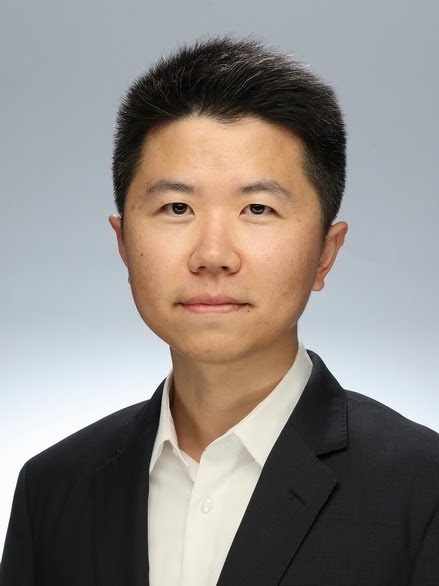Call for Abstracts - Student Forum
Description
The Student Forum at DSAA 2024 (DSAA-SF) is an initiative that endeavors to expand and enhance the participation of undergraduate and graduate students of diverse backgrounds in research on Data Science and Advanced Analytics. Towards that goal, the DSAA-SF will:
- Provide a student research poster submission track which will be used to both provide critical feedback to students on their ongoing research projects and select a subset of students that will be provided financial assistance to attend and present their work at DSAA 2024.
- Organize student poster presentations at DSAA 2024, along with participating reviewers that will provide additional feedback on talks.
- Match participating students with academic and industry mentors that can provide them feedback on current or future research project ideas, along with overall career advice.
- Organize a panel focused on rewards and potential challenges of different research career pathways, including graduate school/PhD, research labs, and industry.
The DSAA-SF will accept poster submissions from only students (they should be the primary authors of the paper, and other authors and their advisor can be co-authors). Students exploring a career in data science research are encouraged to apply. Preference will be given to students who identify with groups traditionally underrepresented in the field of computing and/or students who have limited resources related to graduate school at their home institutions.
Topics of interests include but are not limited to:
- Data science foundations and theories
- Mathematics and statistics for data science and analytics
- Understanding data characteristics and complexities
- Machine/deep/statistical learning-based algorithms
- Advanced analytics and knowledge discovery methods
- Computer vision and pattern recognition
- Optimization theories and methods
- Large-scale databases, big-data processing, distributed processing, and ethical analytics
- Model explainability and provenance
- Theories and methods for evaluation, explanation, visualization, and presentation
- Survey and review
- Trustworthy and responsible data analytics
- Data analytics for social good
Target Audience
The aim of the DSAA-SF is to broaden the participation of undergraduate and graduate students with diverse backgrounds in computing and data mining research. Our goal is to engage and expose students in research pertaining to knowledge discovery from data by providing mentorship and support for the conference experience. We especially encourage underrepresented students in computing to apply, including but not limited to students from primarily undergraduate institutions, and students who have limited resources for research and graduate school at their home institutions.
The target audience for the DSAA-SF is current undergraduate and graduate students who:
- Have worked on a data science research project in one aspect of the data science lifecycle including but not limited to: data cleaning and preparation, data transformation, mining, inference, learning, explainability, data privacy, and dissemination of results.
- Have genuine interest in data science research.
- Are in need of support and feedback from a mentor and data science community for their interest in pursuing data science research after graduation.
Students who were not enrolled in an undergraduate or graduate program in the 2024-2025 academic year are not eligible for the Student Forum.
Important Dates
August 31September 6, 2024 - Submission deadline- September 15, 2024 - Decisions announced
- October 6-10, 2024 - Student Forum (exact date to be announced)
Application Instructions
Applications must be submitted in full via the submission portal by 11:59:59 pm UTC-12 (Anywhere on Earth) on the stated deadline date. Application materials should not be anonymized.
Submit the following materials using the following Web site:
https://cmt3.research.microsoft.com/DSAASF2024
1. Research Abstract
The research abstract MUST be 1-2 pages, excluding references, using the IEEE Conference Proceeding templates (two column format). References are limited to 1 page. IEEE Author Guidelines: http://www.ieee.org/conferences_events/conferences/publishing/templates.html. The applying student must be the leading author of the paper. Once the paper has been submitted, the set of authors cannot be changed.
2. Personal Statement
The student's personal statement will be submitted at the same time as the research abstract using the CMT submission system. It should help readers understand the student's interests, research experiences and contributions, and future goals for data science research. In their statement, they should
- Answer the following questions:
- How did they start data science research, and how did they join the presented research project in particular?
- Did they have difficulties in their pursuit of data science research and how did they overcome these?
- What excites them about their research area that would drive them to continue working on those problems after graduation?
- What is their expectation from participating in the DSAA-SF and receiving mentorship?
- Discuss their specific role and contributions in the data science project presented in their submitted research abstract. They should:
- Write a short summary (2-3 sentences) describing the data science project presented in the submitted research abstract in a way that can be understood by a broad audience within data science.
- Discuss whether project work was done as part of a team and/or independently.
- Discuss their specific contributions to the submitted research project, including:
- Did they design or implement algorithms?
- Did they design or implement the evaluation protocol?
- Did they contribute to the analysis of results?
- Did they contribute any other specific ideas of the project?
Personal statements must be written using the NSF GRFP statement formatting guidelines, which require standard 8.5″x 11″ page size, Times New Roman font for all text, no smaller than 11-point (except text that is part of an image), 1″ margins on all sides, and no less than single spacing (approximately 6 lines per inch). Please use the provided template of the personal statement as follows.
Template for personal statement
Review Criteria
Applications will be reviewed according to the following criteria:
- Clarity and completeness of the submission packet;
- Level of progress in the student's degree program;
- Significance of the student's research contribution in the submitted research abstract;
- Overall participation of the student in research projects;
- Utility of the DSAA-SF participation and mentorship in support of the student's continuing in post-graduate data science research;
- Assessment of how the student can contribute to others participating in the DSAA-SF.
Accepted applicants who also attend the DSAA-SF will have their abstracts published by DSAA (online only, not in the proceedings). Additionally, a subset of the students may be invited to present their papers orally during the DSAA-SF, and all students will be invited to present their work in the form of a poster.
Financial Assistance
Some accepted applicants may receive some financial support towards attending the conference, in exchange for volunteering a few hours of their time at the conference. The maximum amount of support provided to each grantee is set by the sponsors (Elsevier AI Journal, NSF), and they are intended to partially cover the grantee’s expenses. Travel may or may not be partially covered depending on the total availability of funds and the number of awards given.
Acknowledgments
Support for the 2024 DSAA Student Forum is graciously provided by the Elsevier Artificial Intelligence Journal, and the National Science Foundation.


